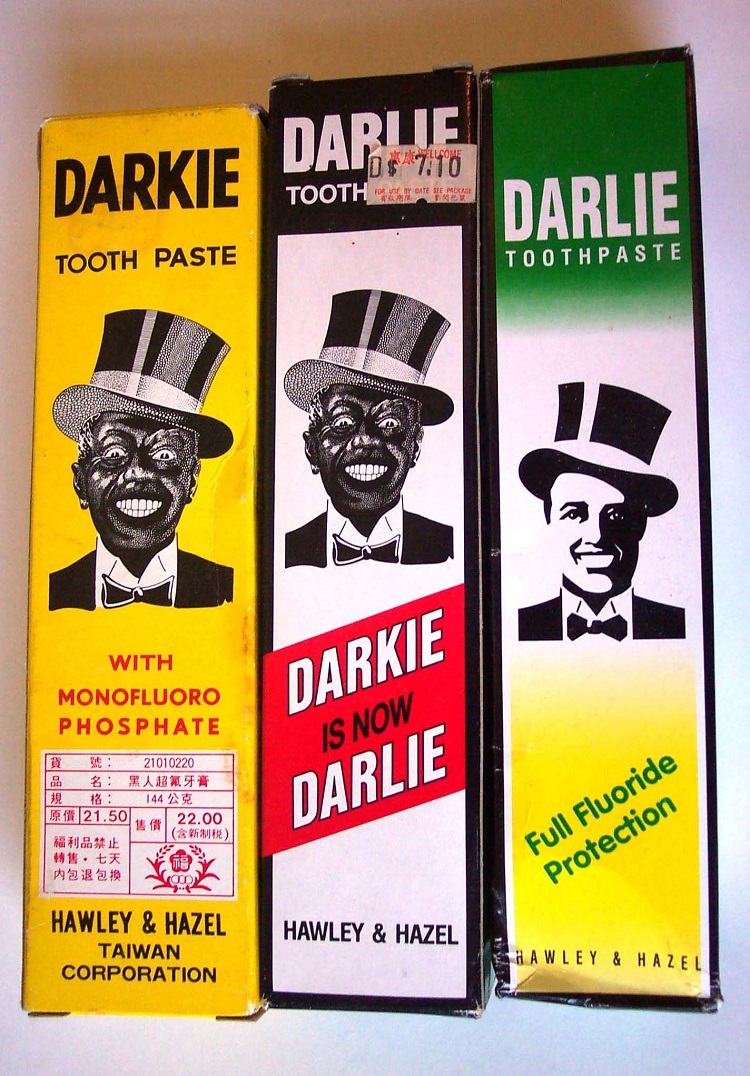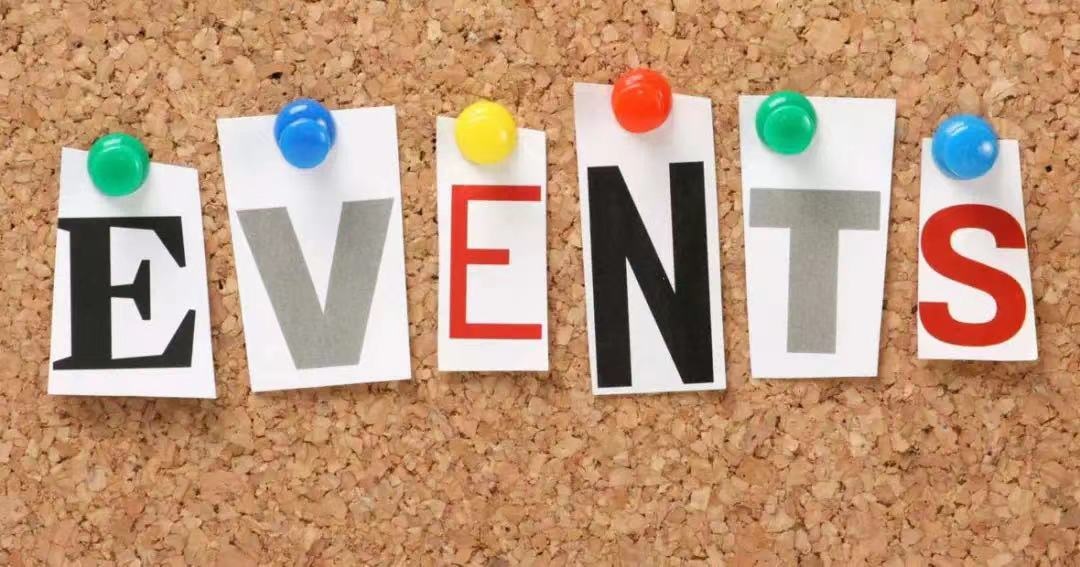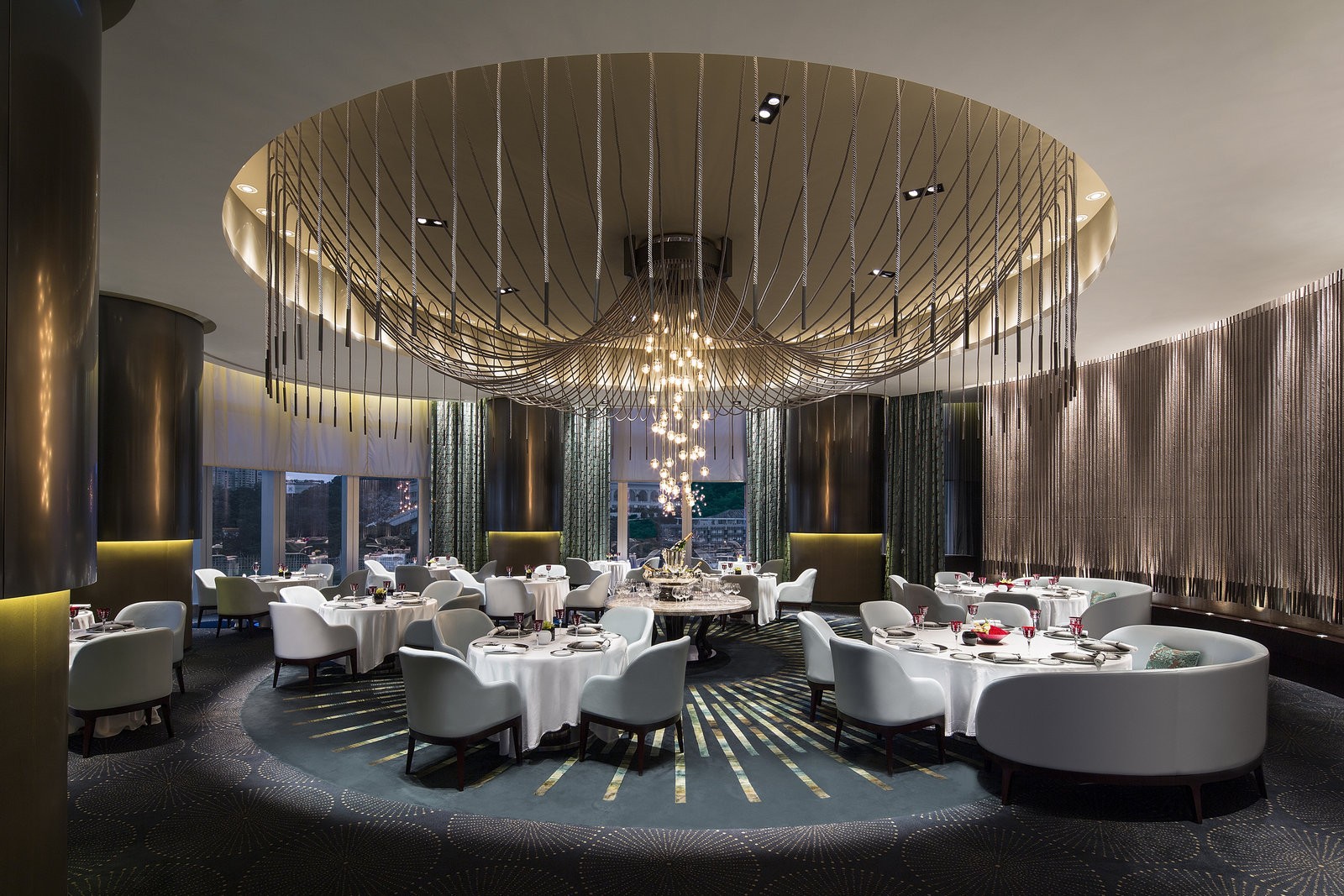by George McKibbens
Learning to read Chinese is filled with surprises, but nothing prepares one for decoding the characters on a tube of Darlie Toothpaste (黑人牙膏), which literally translates as ‘Black Man Toothpaste.’ In 1933, Shanghai-based Hawley and Hazel Chemical Company began marketing what was then called Darkie, a brand which paraded a goofy image of American minstrel performer Al Jolson. A vaudeville legend who built his career mocking black people for white audiences, Jolson’s acts reached their peak in the mid-20th century, but the logo was never abandoned, and Darkie (though renamed) remains China’s best-selling toothpaste today.
Like most distasteful promotional ploys, Darkie didn’t go unnoticed for long. In 1985, when Hawley and Hazel relocated to Hong Kong, Colgate-Palmolive acquired half of the company, inheriting what would become a civil rights disaster. After confronting immediate public backlash, Colgate’s then CEO Ruben Mark offered a statement to the New York Times, promising to change the “offensive” name because, he said, “it’s just plain wrong.”
The resulting Darlie moniker (which could have easily been a typo, since ‘L’ and ‘K’ are side by side on a keyboard) and brighter image came from a compromise between Colgate and the toothpaste’s Hong Kong manufacturers. The original and bigoted Chinese name, however, remains intact today. 黑人牙膏 is still sold on the mainland and has expanded to Thailand, Malaysia, Vietnam and Indonesia. Retro blackface remains routine for East Asia.
Recent years would suggest Chinese have a thing for a bright smile, typified by widespread obsession over the pearly whites of Ding Hui – China’s first black, African-Chinese Olympian – during the 2012 London games. Chinese sports writers repeatedly celebrated how Hui’s “sparkling” teeth were simply magnificent and rarely commented on his skills at the net.
The black community in Guangzhou is more often than not denied housing and job opportunities
Since the beginning of reform and opening up, China has been grappling with newfound diversity. Guangzhou is known worldwide as China’s most African city. In the 1990s, the stability of the Chinese yuan attracted African entrepreneurs, who could effectively export the manufacturing goods they needed. New positions in southern China have recruited African youth at major firms such as Ethiopia Airlines and Kenya Airways, which send daily flights to Guangzhou Baiyun International Airport. Praised by many as a cultural oasis, Guangzhou boasts an African belt in Xiaobei, though it goes by a discomforting colloquial name: ‘Chocolate City.’
When asked about the moniker, Adams Bodomo, a Ghanaian professor and author of Africans in China, dismisses it as innocuous – at least when considered in a larger context.
“Africans in Guangzhou have enough problems to worry about than to get upset with that title,” says Bodomo. In his book, those problems are clearly illustrated. The black community in Guangzhou is more often than not denied housing and job opportunities, while police profiling and racist slurs against prominent black individuals – such as Chinese-African pop singer Lou Jing – are not rare.
Many historical factors lie behind this prejudice, including a lack of diversity and obsession with pale complexions, yet China does have a revolutionary tradition of partnering with African nations. From the mid-1950s until the early 70s, Premier Zhou Enlai toured African, Arab and Latin American countries seeking bilateral relations. Throughout that era, Chinese propaganda was astoundingly pro-black. Chinese artists enthusiastically painted images of blacks as heroic and courageous, fighting against global oppression alongside the Chinese.

In 1966, Mao Zedong proclaimed, “The evil system of Colonialism and Imperialism arose through enslavement and trade of [Africans] and will surely come to an end with the complete emancipation of its people.”
This Marxist prediction was not only well received in the developing world, but black American left-wing leaders like W. E. B. Du Bois, Huey P. Newton and George Jackson paid special visits to China and professed sympathy for the nation’s cause. These crucial partnerships helped to secure Chinese votes at the 1971 UN Security Council.
Under Mao, Chinese media embraced an ideal of multi-racial Marxism. When Chinese policy changed in the 80s and opened up to the outside world, the sentiment of its people transformed as well. Today, many children live in an elitist culture that salutes white privilege. The retro blackface image of Darlie continues to line supermarket shelves across the Mainland, even while it is simultaneously on display at the International Slavery Museum in Liverpool, England.
For now, consumers continue to reach habitually for Darlie. Apparently, clean teeth still trump a clean conscience.






















0 User Comments